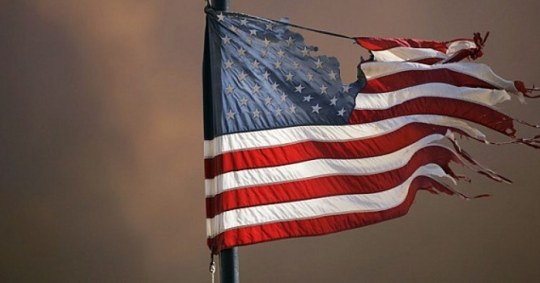#china us relations
Text

LETTERS FROM AN AMERICAN
November 16, 2023
HEATHER COX RICHARDSON
NOV 17, 2023
The summit of the leaders of the Asia-Pacific Economic Cooperation (APEC) economies continued today in San Francisco, California.
Formed in 1989, APEC is made up of the economies of 21 nations around the Pacific Rim: Australia, Brunei, Canada, Indonesia, Japan, South Korea, Malaysia, New Zealand, Philippines, Singapore, Thailand, Taiwan, Hong Kong, China, Mexico, Papua New Guinea, Chile, Peru, Russia, Vietnam, and the United States. Together, these economies make up about 62% of global gross domestic product and almost half of global trade.
David Sanger of the New York Times today noted an apparent shift in the power dynamic between President Joe Biden and Chinese president Xi Jinping, who met yesterday for a four-hour conversation. Earlier in his presidency, Xi was riding on a strong economy that overshadowed that of the U.S. and looked as if it would continue to do so. Then, Xi favored what was known as “wolf warrior” diplomacy: the aggressive defense of China’s national interests against what Chinese envoys portrayed as foreign hostility, especially that of the U.S.
Under that diplomatic regime, Xi emphasized that liberal democracy was too weak to face the twenty-first century. The speed and momentous questions of the new era called for strong leaders, he said. In early February 2022, Russia and China held a summit after which they pledged that the “[f]riendship between the two States has no limits.”
Things have changed.
The U.S. has emerged from the coronavirus pandemic with a historically strong economy, while China’s economy is reeling from a real estate bubble and deflation at the same time that government crackdowns have made foreign capital flee. This summer, Xi quietly sidelined Qin Gang, the foreign minister associated with wolf warrior diplomacy, and in October, he replaced Defense Minister General Li Shangfu, who is under U.S. sanctions for overseeing weapon purchases from Russia.
Indeed, China has also been quietly pushing back from its close embrace of Russia. Just weeks after their February 2022 declaration, Russia invaded Ukraine in an operation that Russian president Vladimir Putin almost certainly expected would be quick and successful, permitting Russia to seize key Ukrainian ports and land. Such a victory would have strengthened both Russia and China at the same time it weakened Europe, the United States, and their allies and partners.
Instead, Ukraine stood firm, and the North Atlantic Treaty Organization (NATO) and allies and partners have stood behind the embattled country. As the war has stretched on, sanctions have cut into the Russian economy and Putin has had to cede power to Xi, accepting the Chinese yuan in exchange for Russian commodities, for example. This week, Alberto Nardelli of Bloomberg reported that the European Union is considering another round of sanctions, including a ban on the export of machine tools and machinery parts that enable Russia to make ammunition.
In a piece at the Center for European Policy Analysis today, Julia Davis, who monitors Russian media, noted that Russia lost an extraordinary 997,000 people between October 2020 and September 2021, even before the war began. Now it is so desperate to increase its population that its leadership claims to have stolen as many as 700,000 Ukrainian children and is urging women to have as many children as possible.
Holly Ellyatt of CNBC noted that to the degree they even mentioned it, Russian media sniped at the Biden-Xi summit, but it was hard to miss that although Russian president Putin was not welcome to attend, Xi came and engaged in several high-level meetings, assuring potential investors that China wants to be friends with the U.S. Also hard to miss was Xi’s pointed comment that the China-U.S. relationship “is the most important bilateral relationship in the world.”
Going into this summit, then, the U.S. had the leverage to get agreements from China to crack down on the precursor chemicals that Chinese producers have been shipping to Latin America to make illegal fentanyl, restore military communications between the two countries now that Li has been replaced, and make promises about addressing climate change. Other large issues of trade and the independence of Taiwan will not be resolved so easily.
Still, it was a high point for President Biden, whose economic policies and careful investment in diplomatic alliances have helped to shift the power dynamic between the U.S. and two countries that were key geopolitical rivals when he took office. Now, both the U.S. and China appear to be making an effort to move forward on better terms. Indeed, Chinese media has shifted its tone about the U.S. and the APEC summit so quickly readers have expressed surprise.
Today, Biden emphasized “the unlimited potential of our partnerships…to realize a future that will benefit people not only in the Asia-Pacific region but the whole world,… [a] future where our prosperity is shared and is inclusive, where workers are empowered and their rights are respected, where our economies are sustainable and resilient.”
Biden and administration officials noted that companies from across the Asia-Pacific world have invested nearly $200 billion in the U.S. since Biden took office, creating tens of thousands of good jobs, while the U.S. has elevated its engagement with the region, holding bilateral talks, creating new initiatives and deepening economic partnerships.
Today, Biden and Commerce Secretary Gina Raimondo announced that the Indo-Pacific Economic Framework, an economic forum established last year as a nonbinding replacement for the Trans-Pacific Partnership former president Trump abruptly pulled out of, had agreed on terms to set up an early warning system for disruptions to supply chains, cooperation on clean energy, and fighting corruption and tax evasion.
In a very different event in San Francisco today, a federal jury convicted David DePape, 43, of attempted kidnapping and assault on account of a federal official’s performance of official duties for his attack on former House Speaker Nancy Pelosi’s husband Paul with a hammer on October 28 of last year, fracturing his skull.
DePape’s lawyers did not contest the extensive evidence against him but tried to convince the jury that DePape did not commit a federal crime because he did not attack Pelosi on account of Representative Pelosi’s official position. Instead, they said, DePape had embraced the language of right-wing lawmakers and pundits and believed in a conspiracy theory that pedophile elites had taken over the country and were spreading lies about former president Donald Trump.
DePape told jurors he had come to conspiracy theories through Gamergate, a 2014–2015 misogynistic online campaign of harassment against women in the video game industry, which turned into attacks on feminism, diversity, and progressive ideas. Trump ally Steve Bannon talked of pulling together the Gamergate participants behind Trump and his politics.
Also today, a subcommittee of the House Ethics Committee set up to investigate allegations against Representative George Santos (R-NY) issued its report. The Republican-dominated committee found that Santos had lied about his background during his campaign and, furthermore, that he appears to be a serial liar. Those lies also “include numerous misrepresentations to the government and the public about his and his campaign’s financial activities.”
That is, the committee found, Santos defrauded his campaign donors, falsified his financial records, and used campaign money on beauty products, rent, luxury items from Hermes and Ferragamo, and purchases at the website Only Fans. The subcommittee recommended the Ethics Committee refer Santos to the Department of Justice, and “publicly condemn Representative Santos, whose conduct [is] beneath the dignity of the office” and who has “brought severe discredit upon the House.”
Santos says he will not run for reelection.
—
LETTERS FROM AN AMERICAN
HEATHER COX RICHARDSON
#Letters From An American#Heather Cox Richardson#Ethics#Santos#Xi#China US relations#Asia-Pacific Economic Cooperation (APEC)#gamergate#Pelosi
5 notes
·
View notes
Text
Watch "*Leaked* China vs USA: The Whole Plan Behind The Balloon" on YouTube
youtube
0 notes
Link
0 notes
Text
Is Unipolar World Order Coming to an End?

China as the Rising Super Power Is Unipolar World Order Coming to an End: We are seeing China get ever closer to joining the US as a world super power. We had a long unipolar moment that began after the ed of the Cold War and has lasted till now. China’s economic performance demonstrates that it is really close to becoming a super power. Its military modernization is relentless and we not be far off from the moment when the unipolar power comes to an end. China’s tremendous amount of capital that it can deploy in so many ways is something the US can not do. Similarly, the Chines BRI is such a milestone for the world order and international relations. This is something which China could do. More research articles
The current situation of Multipolarity
On one hand we have a level of multipolarity at play in which you have a number of the other powers that are able to assert themselves often aggressively, as we saw Russia. That’s simply something that the US has not been able to stop. I would argue that the rise of China has led to a situation where Beijing has been able to develop partnerships with a number of countries who for many years had good relations with the US.
Moreover, China, although its vehicle of infrastructure and investments has been able to push back at that helps for sure. You can see in that regard that the US’s efforts to build a good consensus and coalition to push back China has only had limited success. You have so many countries around the world including in the West and EU that value their trade relations with China. They would not imperil their relationship with China for the US efforts to counter the Chinese led Power.
In addition to this, I would also argue that there’s somewhat similar dynamics with Russia. The US has been trying to make this global effort to impose sanctions on Russia and isolate it. But it had a limited effect because many countries including EU are heavily dependent on Russia for energy. I think until those countries which are so reliant on Russia are able to find an alternate, the US is going to have limited efforts of leading from the front and getting the world to unite against countering Russia. That’s a reflection of the fact that you have other major powers that have been able to develop these important commercial relationships.
Pakistan relationship with the US
Pakistan’s relationship with the US has been very volatile. I would argue that a key development occurred last August when the US left Afghanistan. The perception in Pakistan is correct that the US officials viewed Pakistan from the lens of Afghanistan. Ever since the US left and relocated their embassy, there has been a drift in relationship. It’s been on hold. It’s been unsettled. It has been in search of a new anchor for a relationship that it has been unable to find. You could argue that this is an area of cooperation.
Moreover, there has been a bit of bad blood with the developments of the last 2 3 months with the Imran Khan’s allegations of a US conspiracy. The new government will allow some of that rhetoric to dissipate al least on official level and allow for a space for the future cooperation. The relationship has suffered some blows. The new PM of Pakistan has offered conciliatory messages and so has the US government responded. I do believe that Washington will have a high comfort level working with Shehbaz Sharif than with Imran Khan because of the allegations Imran Khan made.
Furthermore, just a quick side note, the Pak-US relationship was not always bad under Imran Khan’s rule. He made a very successful visit to the President Trump in the White House a few summers ago. Donald Trump had asked Imran Khan to negotiate and bring the Taliban to negotiations wit the US. It was only in recent months when President Joe Biden infamously did not call Imran Khan and things got worse. I do agree that in past, the US, Pakistan relations has been what some would call as Imperial. There frequently has been meddling in Pakistan’s domestic politics. If you look at the US had done in terms of the drone strike campaigns, the efforts to track down Bin Laden with a fake vaccination campaign. I understand why Pakistan are certainly skeptical and suspicious of the US policies. In Washington, there is certainly acknowledgment of that. But I do think that the relationship can come around and overcome the problems of the last 3 months. But my sense is that Imran Khan will continue to hold on to that narrative of a US led effort to oust him.
US Influence in South Asia
When the US plays a democracy card, it is more critical of the countries that are not allies or strategic partners pf the US. But New Delhi has been a bit concerned about what the Biden Administration had said about India. Including the 2+2 dialogue that happened in the Washington 2 months ago in which the Foreign Affairs and defense officials of both the countries met to talk about security and diplomacy. Antony Blinken, the US Secretory of State, made this concern about human rights record (of India). But I think this is a separate question from the larger question of how the US sees South Asia and how it sees what China is up to and what Russia is up to.
In addition to this, it’s very interesting, I think that South Asia has become a major battle field for India-China competition and also for the China-US competition. China is Washington top foreign policy concern. When the US has tended to accord to Asia, it has looked at East Asia. That’s because the US top treaty allies are there like Japan and South Korea. It’s also East Asia where China has been doing stuff that concerns the US. Mostly its provocation in the South China Sea that directly impacts key US partners and allies. Now that we see China deepening its relationship, not only with Pakistan but also its commercial presence in the region including in the countries where traditionally, India had been a key external player. I think that we have seen in recent times and what we will see more in future is the US trying to bring most of the countries in South Asia under its Indo-Pacific strategy.
Final point on this is the Russia factor. South Asia is a region where Russia has no enemies. Half of the SAARC countries abstained from the first General Assembly resolution condemning the Russia invasion. Russia has been able to develop a soft power in many countries of South Asia. Not only in India but also in Bangladesh and Sri Lanka and many other countries which is serious threat to the US made unipolar World Order in the South Asia.
#unipolar#china us relations#china us trade war#global politics#international relations#multipolarity#multipolar world#insurgence of russia#russia invasion
1 note
·
View note
Text
China’s drive for tech independence gathers pace as US launches new Indo-Pacific strategy
China’s drive for tech independence gathers pace as US launches new Indo-Pacific strategy
Following the launch of Washington’s Indo-Pacific Economic Framework, experts say Beijing should intensify its push for tech self-sufficiency, but be careful not to decouple from foreign firms and institutions altogether.
Source link
View On WordPress
#china economy#China science and innovation#China technology#China trade#china us relations#CPTPP#Indo-Pacific Economic Framework (IPEF)#Joe Biden&x27;s China policy#US-China tech war
0 notes
Text











chinese guzhuang fashion
#young actress and actors are cornering the guzhuang market#that's why the industry is becoming more and more competitive#when it comes to guzhuang idol dramas/guouju古偶剧 with fantasy elements(like xianxia dramas)#cnetizens are bored with the same old faces#media has found that young actress and actors (20-27 years old) especially new pretty faces are more appealing to viewers#cnetizens can actually be mean to actress and actors (over 33 years old) cast as lead characters in guzhuang idol dramas#reasons is that lead characters are usually portrayed as teenagers or really young people#and the audience find it very weird to have middle-aged people cast such characters#especially scripts are usually adapted based on fictions#so fans of the novels would be furious about such casting#besides cnetizens want to see normal aging faces#but these shows always use excessive filters and PS#causing the midle-aged faces to be fake and weird#i once saw really mean comments on douyin for xianxia dramas casting middle-aged actress getting over one hundred thousand likes#actress and actors in zhengju正剧 guzhuang dramas or luodi落地 guzhuang dramas are not affected by this#like telling a realistic down-to-earth story or story inspired by real history or related to folks#and there is no fantasy or xianxia elements#china#fashion#chinese fashion#guzhuang#cdramas
306 notes
·
View notes
Text
#lmao#lol#tiktok#national security#chinese spy#byteDance#espionage#data privacy#cybersecurity#congressional hearings#china-us relations#social media#misinformation#manipulation#intelligence agencies#hypothetical threat#chinese government#user data privacy#tiktok ownership#foreign influence#online surveillance#misinformation campaign
60 notes
·
View notes
Text

JUST BECAUSE IT'S A MOVIE ABOUT CHINESE-AMERICANS DOESN'T MEAN WE HAVE TO TALK ABOUT THE PANDEMIC OR INTERNATIONAL RELATIONS THE MOVIE IS LITERALLY A RAUNCHY SEXY COMEDY
#What the FUCK do you want#I personally didn't love the movie but what the fuck is this review#Unsurprisingly the reviewer is a white man#Joy ride#Joy ride 2023#Sinophobia#This may come as a surprise but we Chinese diaspora don't actually talk about covid and fraying china-us relations every day!#Non sw
223 notes
·
View notes
Text


since they met in the 70's, i wanted to try and draw how they looked like back then (i know nothing about fashion ;v;-)
for some reason i always end up mixing or forgetting the year their bilateral relations started (1972). maybe its bc i dont like history. Specially when it comes to remembering important dates lol
#despite the first argentinian president (jorge rafael videla) having visited china in 1980#i wanted to go for a different approach and make argie visit china the year after they officially started their relations (1973)#so that techincally means she travelled with perón's wife (maría estela perón). Despite her not being the president at the time#idk anything about politics lmao i just thought it would make more sense??? bc business and stuff ig#specially when i take into account that argie used to be very reserved and always on point when it came to meetings in those times#she was going through. Many things at the time. So business was her first priority. Because she needed someone to rely on (she was/is broke#i like to think that she was a bit. Intimidated by china at first. But grew fond of him slowly#perhaps they clicked because they met at their lowest point in life LMAO#china with short hair.....man.....he looks kinda like a butch JALJKAKSLFLSDFS#hetalia#hetalia fanart#hetalia china#hetalia argentina#aph china#aph argentina#hws china#hws argentina#hetalia oc#oc x canon#argchu#my art
15 notes
·
View notes
Text
from mikjikj-mnikuk/turtle island to inuit nunangat to kanata to kalaallit nunaat to anahuac to abya yala to alkebulan to the levant to moananuiākea to sápmi to éire to bhārata to zhōngguó to nihon to aynu mosir to siberia to niugini to nusantara to bandaiyan to aotearoa, from coast to coast to coast to coast, from sea to sea to sea to sea, none of us are free until all of us — men, women, enben, children, queer people, disabled & neurodivergent people, elders, animals and the land and the sea and the sky — are free!!!!
#arcana.txt#turtle island = north america aka canada america & mexico (& the carribean & central america & greenland depending on who you ask)#inuit nunangat = the arctic aka inuit territory#anahuac = the traditional name for mexico#abya yala = south america (& the carribean & central america depending on who you ask)#alkebulan = the indigenous name for africa#levant = the place where israel & palestine are but also includes cyprus jordan lebanon & syria#moananuiākea = the hawaiian word for the pacific ocean & all the pacific islands#sápmi = the traditional land of the sámi in the northern parts of scandinavia & sweden norway finland & russia#bandaiyan = the indigenous word for australia / aotearoa = the māori word for new zealand#& the reason why i& included animals & the land sea & sky was bc that's central to indigenous activism just as much as it relates to humans#ya can't just free the humans ya gotta free the lands seas & skies too!!#btw mikjikj-mnikuk means turtle island in mi'kmawi'simk i& found it fitting to use the oldest language that yt europeans heard when arrivin#as the mi'kmaq were literally the first indigenous peoples that yt settlers spoke to & saw in 'canada' aka kanata which is the actual word+#which it originated from which came from a huron-iroquois word!!#+ zhōngguó is the chinese word for china ! i& included it bc the uighurs & tibetans & other idigenous peoples are still struggling there!!#+ nihon is the word for japan & i& added it bc we can't forget the ainu & okinawans !!#kalaallit nunaat = greenland & éire = ireland in gaeilge#niugini = new guinea in tok pisin / nusantara = indonesia & the archipelago from old javanese bc they have a lot of indigenous peoples#bhārata = india — i& added it bc there's a LOT of indigenous peoples there & the caste system often has them at the bottom#aynu mosir = ainu homelands !!#siberia also has MANY indigenous peoples living in literally the coldest parts of the world & they're going thru a lot rn#nobody's free until all of us are free!!!!#protect indigenous peoples everywhere!!!! protect each other!!!!#protect the lands seas & skies & also keep them centered in your activism while making sure human rights are valued!!#land back#activism.#psa.#** post; okay to reblog.
19 notes
·
View notes
Text
this is more of a personal commentary because I don't think it's my place to police anyone but when people write the fire nation as homophobic as a shorthand for them being bad it doesn't come across the way you think
#I just keep reading a lot of literature about pink washing and fr the way some of you do it is cringey TO ME#again TO ME#reading about us vs china international relations styles#cause basically the us is like everyone needs my morals#whereas china is like I just need you all to think of me as ur pal ur buddy ur ally#and the demonisation of countries that don't allow ss marriage when the majority of the time they are in fact#being colonised#and it's a result of the colonisation and pushback against western imperialism culture and former colonial laws etc#idk I'll probably have like#more coherent thoughts about this at some other point#I need to sleep on these thoughts
9 notes
·
View notes
Text
Who among us hasn’t been tempted to procrastinate grad school work by reading an academic paper on how Czech Hunter speaks to the continued salience of 1990s Western exploitation fantasy rooted in the fall of communism/the Iron Curtain
#instead I have to summarize textbook chapters on economies of scale#and a discussion post on dumping and US-China trade relations
15 notes
·
View notes
Text
youtube
#new cold war#manufacturing consent#ben norton#usa pol#sino#... preparing myself to experience more than red scare 'spy' balloon and sunbear-is-a-man-in-a-suit sinophobia#and other manufacturing consent initiatives in the western mainstream media#oh also the 'there's a muslim genocide in xinjiang' atrocity propaganda cropping up again. despite that additional vocational schools#have been finished for years now. ahhh but but the adrian zenz shit papers about birth control 🤪#i peeked at the foreignaffairs article in question#(used archive.[] to bypass having to give foreignaffairs my fucking email. 12ftio wasnt cutting it)#yeah it's literally full of misinformation & related manufacturing consent content#which I guess would be good to put up as an example of what that looks like but tbh don't have the energy to point out every single one#& I'd rather not put that here without that. or actually with it either because i dont care to deal with#some 'ok so the USgov lies & pays well for it but china is still bad right' chucklefuck wandering in and going '🤓👆well you see'
2 notes
·
View notes
Text
"[Van] Jackson
Since the 1970s, America had repeated military buildups in response to perceived threats. Whether it’s the Soviet military buildup, or the War on Terror, there have been multiple periods where we do these large-scale buildups. This is why America’s military is so ginormous. We have done that under conditions where we don’t raise taxes in four different instances since the 1970s, and because we don’t raise taxes and spend so much on the military, we have to bring in large amounts of foreign capital to finance it. And so, you create global imbalances when you’re the giant sucking machine sucking foreign capital into your economy.
The result of that is not just global imbalances, which produce things like the Asian financial crisis, but it also produces imbalances in our own economy, too. It creates real estate bubbles. So, this is a giant volatility machine to the global economic order and the financial pipes that bring the capital to us. We know it’s a giant volatility machine. It’s driven by high risk financial instruments and speculation, and all of this is pretty destabilizing, in a financial and creating bubbles sense, but it also creates a system where all of these developing economies in Asia have to suppress labor rights to be competitive in the export market because their models of development rely on exports. This system that we perpetuate in the name of supporting military primacy, and military primacy is supposed to in turn support the system, prevents domestic redistribution and balanced capital labor relations in these other Asian economies and countries.
And so, not only are we creating conditions where labor rights get repressed, and imbalances in other countries, it creates systems of kleptocracy and oligarchy, which is rampant in Asia — not everywhere, but it’s pretty prominent. It’s structural violence, and structural violence is what gives way to greater political insecurity, and makes countries need Chinese capital. Chinese capital spreading around Asia is one of the things American foreign policy is so worried about, but we’re creating conditions that we don’t like, and then we do things that worsen those conditions.
[Nathan J.] Robinson
Yes, it seems ultimately kind of self-defeating, even though we might say that what lies beneath the rhetoric of freedom and openness is the desire to pursue dominance and hegemony, or what the U.S. would call 'U.S. interests.' Ultimately, I think one of the conclusions of your work is that our current approach is not actually leading towards a world where the United States gets everything it wants, but, in fact, is putting not only other people but also ourselves in quite a bit of danger.
Jackson
Yes, the thing that Washington has to wake up to, and that I’m worried that it will not because it has incentives not to, is that the requirements of peace and primacy are deeply at odds with each other. Peace requires a certain degree of economic interdependence, regional cohesion, inclusivity in various ways, and above all, military restraint. Primacy requires the opposite of all of that. It requires the formation of rivalry and geoeconomic blocs. It requires containment against your rising rival, arms racing, and weapons proliferation.
It’s patently obvious that by pursuing primacy, we’re making ourselves the enemy of what remains of the Asian peace. It’s that insistence on primacy, coated rhetorically as openness, that is undermining the sources of the Asian peace. The preservation of stability the past 44 years is something that we somewhat take for granted in Washington, and we shouldn’t because it’s eroding rapidly, and Trump was simply a very vibrant data point along a larger trend line. And so, we’re not on a good track."
- Van Jackson being interviewed by Nathan J. Robinson, from "Why This Foreign Policy Expert Thinks Americans Dangerously Misunderstand China." Current Affairs, 16 May 2023.
#van jackson#nathan j. robinson#quote#quotations#diplomacy#foreign policy#international relations#taiwan strait#asia#china#us imperialism#economics#foreign capital#capitalism#us military#arms race#military industrial complex#structural violence
9 notes
·
View notes
Text
literally hate seeing taiwan trending on twitter like i do not need to see what a bunch of white westerners and elon musk bros think abt cross strait relations i am exploding them all in my mind
#they all love to talk abt taiwan just when they're talking abt#their silly little hypotheticals concerning china-us relations#like man shut upppp ur so annoying#real actual ppl live there it's not just a chess piece or a gotcha for ur stupid twitter debates w each other#ennuitxt
6 notes
·
View notes
Video
youtube
The Rise and Fall of the Jurchens & Identity Politics As Imperial Policy - Jin Dynasty History
The Jurchen tribes rebelled against their Khitan overlords and exploded into a full-blown dynasty in a relatively short amount of time. To manage and rule their newly created multi-ethnic Jin dynasty, the elites sinicized themselves and used identity politics to maintain their legitimacy.
#history#china#jin dynasty#i think the point at the end abt manchu ethnicity being constructed to bring various groups together as a political bloc is an interesting 1#with how it relates to western ethnic constructions like 'white' - used to bloc together various groups around the african slave trade
26 notes
·
View notes